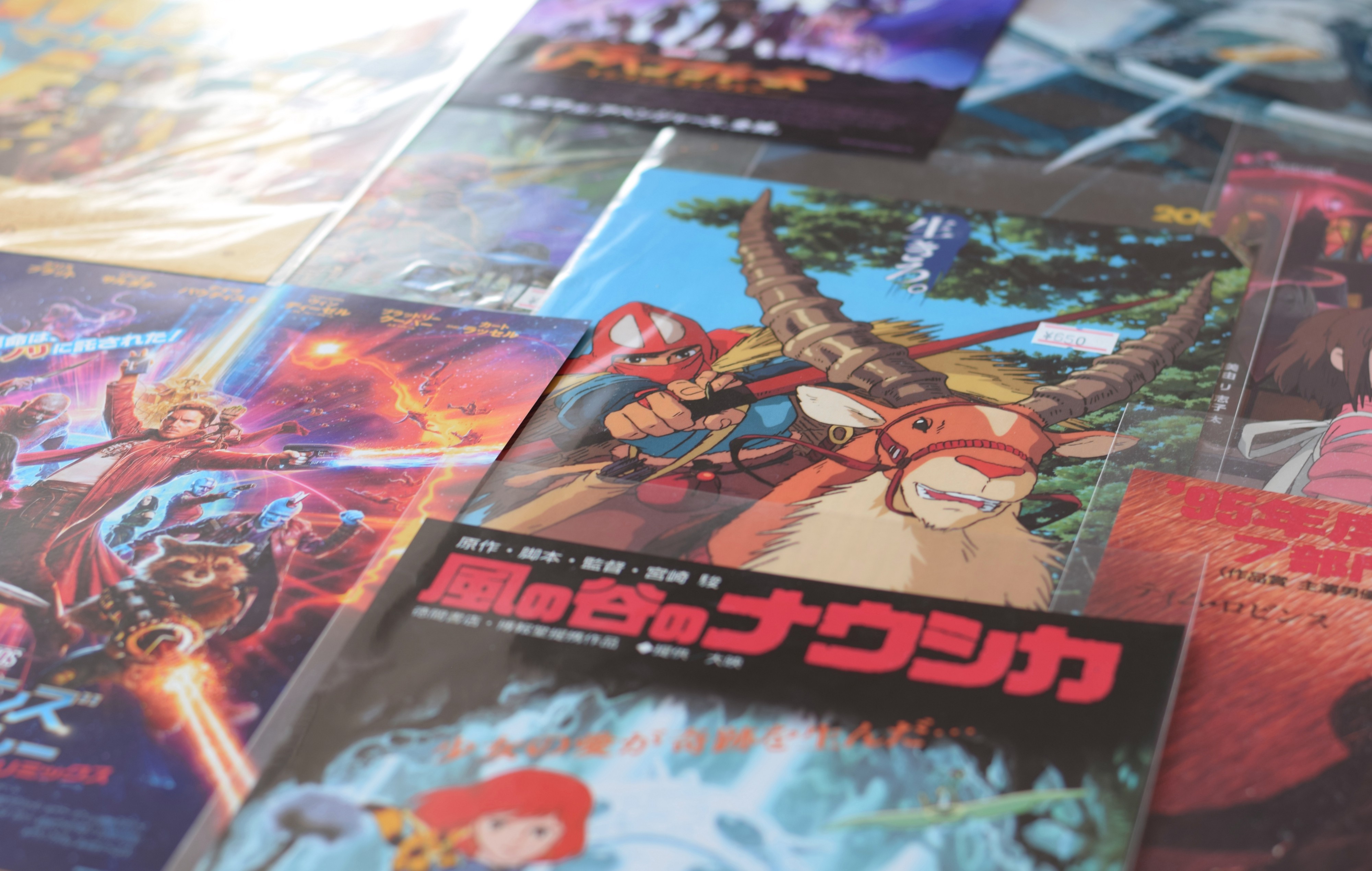Anime helped me grow up and got me to the next chapter of my life.
 Photo by Matt Popovich on Unsplash
Photo by Matt Popovich on Unsplash
My older brother introduced me to my first anime when I was 4 years old, and I instantly fell in love with the genre. The two of us were staying up much later than we should have, watching Adult Swim, Cartoon Network?s late-night television programming.
It was a show called ?Inuyasha?, about a half dog-demon and a girl that traveled the world looking for pieces of jewel. I played ?Pokemon? throughout my whole childhood, and collected Yu-Gi-Oh cards. Gradually, I would get more into other anime, like Naruto, Dragon Ball Z, and as I got even older, into my high school and college years, I would start getting into highly rated anime like ?Full Metal Alchemist: Brotherhood?, ?Tokyo Ghoul?, and ?Hunter x Hunter?. I know so many friends who have a cult-like devotion to Hayao Miyazaki?s ?Spirited Away?, friends who don?t look like me and don?t think like me.
I have taken a long hiatus from watching anime since my freshman year of college, but I?ve started thinking about the reasons why international audiences love anime, given that many of my middle school students in an inner-city school are big anime fans of the same shows I watched when I grew up.
Anime, then, seems to have universal appeal. I have encountered big fans of anime everywhere I go, regardless of race, cultural background, socioeconomic status, or even age. What, then is the universal appeal behind anime? Why can people of all different backgrounds see themselves in anime characters, and why does Japanese anime reach audiences across the globe?
The first reason that anime is so appealing is its physical and aesthetic allure. Simply put, animation just keeps getting better and better. Blogger Angel Qinglan Li makes the following argument for anime?s aesthetic appeal as a premier 21st-century art form:
?Anime at its best is a genuine, richly fascinating contemporary Japanese art form with an exceptionally appealing visual style?young people brought up in a world of computers and video games are particularly open to its distinctive aesthetic.?
According to Brigette Koyama-Richard, current 21st-century anime traces its origins in ancient, traditional Japanese art. Koyama-Richard says that Japanese animation ?draws on the same centuries-old artistic traditions that form the basis of manga.? Part of what gives anime such international appeal is its ability to encompass and transcend the traditional confines of genre. One anime, such as ?Full Metal Alchemist?, can simultaneously be a comedy, adventure, fantasy, romance, and science-fiction.
For me, anime was always appealing because it opened up a new world ? a world I never thought existed or could exist. Anime opened up a world I never experienced in my own life, any film, or book. I would try to replicate the powers and moves I saw in ?Naruto? or ?Dragon Ball Z?, while reading more about the high-tech, dystopian world of ?Psycho Pass?.
In 2017, the New York Times listed ?Spirited Away? as the 2nd best film of the 21st century. Guillermo Del Toro, the famous and formidable director of ?Pan?s Labyrinth? and ?The Shape of Water?, has been a huge fan of Miyazaki?s films since he was a kid. He wrote a moving review of ?Spirited Away,? a film about a girl?s coming of age story in a mythic world.
Chihiro, the main character of ?Spirited Away?, loses everything. According to Toro, ?she loses her parents, she loses her name, she?s called nothing.? For Toro, the ?melancholic meditation? on loss is characteristic of all his films, and of much of anime in general. Miyazaki?s villains and monsters are rooted in ancient tradition, elemental monsters ?rooted to the earth, to the wind, to the water.? For Toro, the most beautiful thing in Miyazaki?s films, and ?Spirited Away? particularly, is an unspoken balance between good and bad:
?That?s the beauty of him. He understands that one of the essential things is to not seek anything good because by definition something will then become bad. Do not seek anything beautiful because by definition something then becomes ugly.?
Toro loved Miyazaki?s films, and especially ?Spirited Away? so much that he credits the sense of loss and tragedy to what he personally tried to do in ?Pan?s Labyrinth?. For Toro, Miyazaki?s power in filmmaking is pure magic and indescribable.
?Spirited Away? helped to vault anime into our popular imaginations, especially when it won the 2003 Academy Award for Best Animated Feature Film. The film is an essential segue into the second reason why anime is so appealing: its complex narrative and storytelling.
Susan J. Napier, Professor at Tufts University, argues that anime?s storytelling makes it an intellectually challenging and stimulating art form that builds on high cultural traditions. To Napier, anime ?move[s] and provoke[s] viewers?to work through certain contemporary issues in ways that older art forms cannot.? On a sociological level, anime is meant to be taken seriously. To her, it?s not just a Japanese cartoon because the medium has an ability to encompass many genres. Its accessibility presents an open door to those interested in Japanese culture:
For those interested in Japanese culture, it is a richly fascinating contemporary Japanese art form with a distinctive narrative and visual aesthetic that both harks back to traditional Japanese culture and moves forward to the cutting edge of art and media.
Anime is global, both as a ?commercial and a cultural force,? according to Napier. It is a force for globalization and a competitor for Hollywood?s dominance of international mass culture. It is a form of popular culture that does have Japanese roots, but that has influence far beyond Japan. What makes anime so popular for many of us that grow up in the west is ?its insistent difference from dominant American popular culture.?
Anime is uncompromising in its ?narrative style, pacing, imagery, humor?emotions and psychology.? While Disney may have a predictable plotline that enforces cultural norms, anime is distinctive in its approach to ?universal themes and images.? For me, anime reinforced a value of relationships and community that Disney never did. The storytelling aspect of anime in its lightning action, compelling characters, and community theme never ceases to amaze me, even now. Perhaps, for a global audience, watching anime is a way of grasping for a world of connectedness and harmony when we live in environments terrorized by conflict and strife. I live in one of those environments in Baltimore City
?It may be that animation in general ? and perhaps anime in particular ? is the ideal artistic vehicle for expressing the hopes and nightmares of our uneasy contemporary world,? Napier said, referring particularly to ?the shifting nature of identity in a constantly changing society.?
What is my real answer for why anime is so appealing? I don?t know. It?s still mostly a mystery. But there is a universality to anime that is both unusual and approachable. It?s always been complex and fascinating for me and so many others, and anime has always resonated with me on an emotional level that is very difficult to explain.
All I know is that, yes, the world is changing very rapidly, one that would have seemed like a dystopia to me when I was a child. Anime, to me, has always provided a model for how to survive and live together with others in a world that I no longer recognize.
I will always remember the night I binge-watched the entire final season of ?Full Metal Alchemist? and finished the final episode with a whole lot of hope. It was a world the characters didn?t recognize at the beginning of the first season. A war was fought. Lives were lost.
But the characters had to go on, and in those characters I saw myself, my friends, and my family, in a world entering the next chapter. I didn?t know what came next, but all I felt was that the show helped me grow up and got me to the next chapter of my life.

